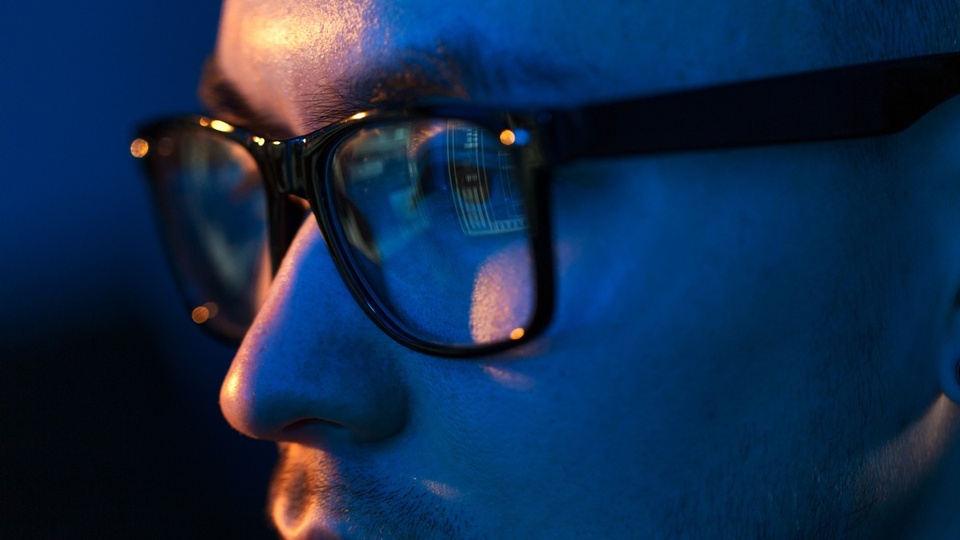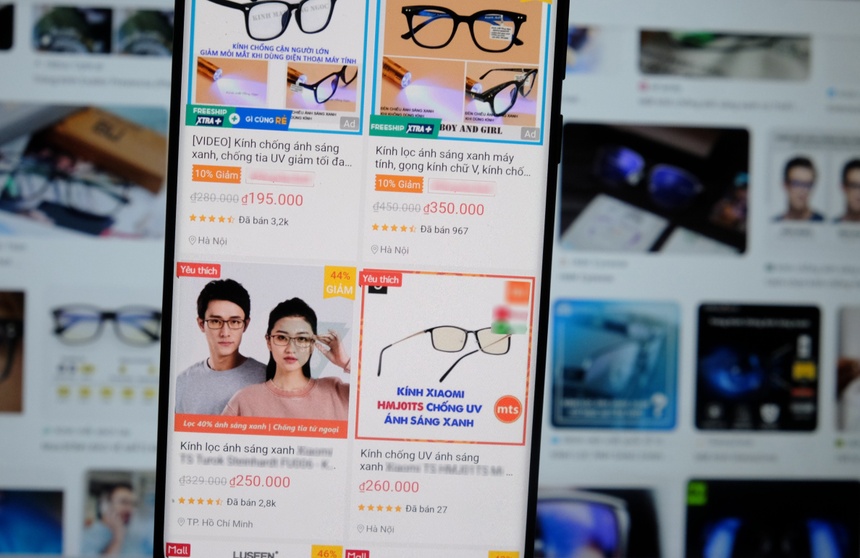Blue light from phones and computers does not cause vision loss as many people mistakenly believe.
 |
Blue light filtering glasses do not protect the eyes as many people mistakenly believe. Photo: Shutterstock . |
Many people are concerned that the blue light from their phone or computer screens is damaging their eyes or causing vision loss, so they use blue light-blocking glasses or color-changing screen filters. Is blue light harmful to the eyes is a question that ophthalmologists often receive, according to Dr. David J. Ramsey, Director of Ophthalmology Research at Lahey Hospital & Medical Center.
“The short answer is no. The amount of blue light from electronic devices, including smartphones, tablets, TVs, and laptops, does not harm the retina or any other part of the eye,” Dr. Ramsey explains to Harvard Health Publishing.
Blue light is visible light with a wavelength of 400–450 nanometers (nm). Blue light can appear even when we see white or another color. This type of light is of concern because it has more energy per photon of light than other colors in the visible spectrum, namely green light or red light.
In fact, the strongest source of blue light around us is sunlight. “Consumer electronics do not cause damage to the retina because the amount of light they emit is small. Phones have a maximum brightness of about 600 candelas per square meter. Signs can be twice as bright, but even that is only one-tenth of the sunlight we see every day,” says Dr. Ramsey.
 |
Blue light filtering glasses are often more expensive than regular lenses, but do not provide the protective effects as advertised. Photo: Hoang Nam. |
However, experts note that vision can be damaged by looking directly into high-powered LED bulbs, such as military -grade flashlights and other handheld lights.
The reason is that LEDs and incandescent bulbs may have the same brightness, but the light energy from an LED is concentrated in a small source, about the size of a pinhead. Meanwhile, incandescent bulbs have a significantly larger light-emitting surface. Looking directly at the light source of an LED is similar to looking directly at the sun in the sky.
“Overall, compared to the risk of vision loss due to aging, smoking, cardiovascular disease, high blood pressure, and being overweight, the risk from exposure to blue light from consumer electronics is negligible,” Dr. Ramsey assessed.
The evidence to date does not support the use of blue-light blocking or filtering lenses to protect retinal health, doctors note. Advertisers have even been fined for making misleading claims about these lenses.
However, devices that emit blue light can disrupt sleep or affect other aspects of health or circadian rhythms, so it's still a good idea to limit device use at night.
According to Zing
Source




![[Photo] National Assembly Chairman Tran Thanh Man receives First Vice Chairman of the Federation Council of Russia](https://vphoto.vietnam.vn/thumb/1200x675/vietnam/resource/IMAGE/2025/9/2/3aaff46372704918b3567b980220272a)
![[Photo] National Assembly Chairman Tran Thanh Man meets with First Secretary and President of Cuba Miguel Diaz-Canel Bermudez](https://vphoto.vietnam.vn/thumb/1200x675/vietnam/resource/IMAGE/2025/9/2/c6a0120a426e415b897096f1112fac5a)
![[Photo] Lao President Thongloun Sisoulith and President of the Cambodian People's Party and President of the Cambodian Senate Hun Sen visit the 95th Anniversary Exhibition of the Party Flag Lighting the Way](https://vphoto.vietnam.vn/thumb/1200x675/vietnam/resource/IMAGE/2025/9/2/3c1a640aa3c3495db1654d937d1471c8)
























































































Comment (0)